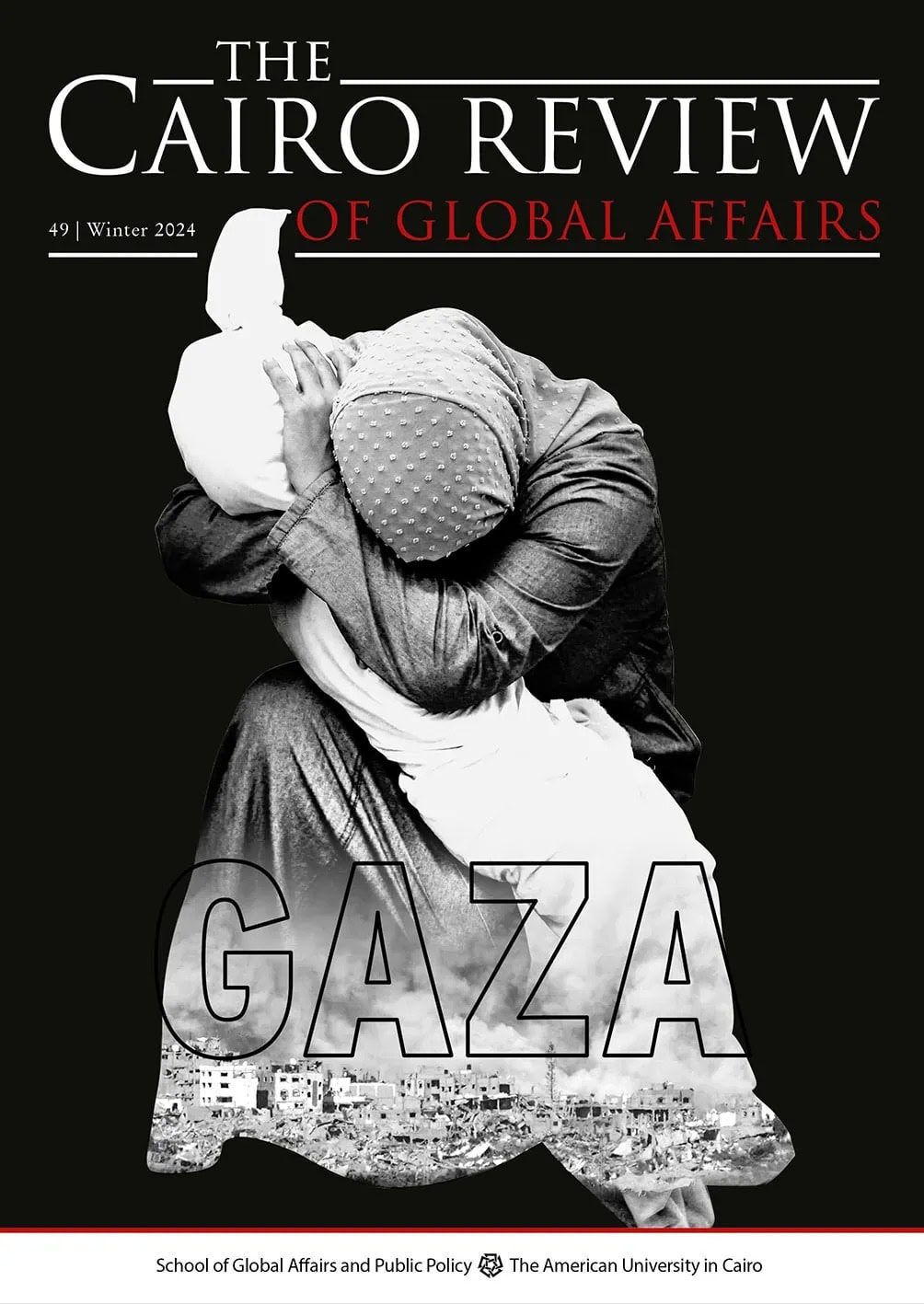Winter 2024

Cairo Review No. 49
Gaza
Q & A
Genocide on the Docket at the Hague
International law is a tool for both oppression and emancipation, says AUC law professor Thomas Skouteris in this Q&A as he breaks down the intricacies of the ICJ’s January 26 order for provisional measures in South Africa v. Israel, and elucidates the present and future of international law.
Essays
In Darkness All is Black: Exploring the Realities of Violence by the Israeli State and Hamas
The events of October 7 and beyond raise a major ethical question: by what standard is the violence that Hamas uses against Israel different from the violence that the Israeli state uses against Hamas?
Radicalization and Regional Instability: Effects of the Gaza War
As Israel attempts to reestablish its identity as a regional deterrent by destroying Gaza, the effects of its campaign cascade through the region, shifting political alignments, and generating new concerns over radicalization and conflict spillover
Gaza: Israel’s Unwinnable War
Even if, for argument’s sake, it achieved its war goals, Palestinian resistance will exist wherever there are Palestinians—whether in Sinai, Beirut, Ankara, Tehran or Amman
Hamas, ISIL, and Israel: An Exercise in Comparison
One of Israel’s main responses to the October 7 attacks was to declare that “Hamas is ISIL,” and that the world should thus unite in support for Israel to eliminate it. But others are not sure, and ask whether Israel’s occupation of Palestinian territories, and its practices as an occupying power, is even more worthy of global sanction
A Revived Arab Peace Initiative from Saudi Arabia Could Save the Middle East
Understanding Saudi pragmatism toward Israel, and its historical balancing act, is crucial for reviving the 2002 Arab Peace Initiative and countering the Abraham Accords’ erasure of Palestinian rights
Covering the Palestinian–Israeli Conflict: Between Exasperation and Empathy
A personal reflection of American involvement in the region’s wars through the eyes of a correspondent
Security and Peace After the War in Gaza
Is the two-state solution feasible? In order to pursue such a policy, the international community must be able to overcome three main points of contention: Israeli occupation, the creation of a Palestinian state, and the role of Hamas
Israel’s Ever-Existing Plan to Depopulate the Gaza Strip
The recent violence in Gaza may be unprecedented in its intensity, but the Zionist rhetoric underlying Israel’s current brutal strategy has roots going back much earlier than October 7
A Palestinian Gandhi or an Israeli de Gaulle? Why the Context of Violence Matters
Questioning why there hasn’t been a Palestinian Gandhi or Mandela ignores the history and context in which Palestinian resistance occurs, especially the abiding violence visited on the Palestinians since 1917
How American Public Opinion on Palestine Shifted
Overlapping connections among young activists struggling for the rights of women, 2SLGBTQIA+, Black Lives Matter, indigenous Indians, Latinos, and all people of color have produced a dramatic shift in how the Palestinian–Israeli conflict is being perceived in the United States
The EU’s Response to the Gaza War Is a Tale of Contradiction and Division
In the face of worst-ever Israeli–Palestinian violence, Europe’s selective moralism has also led to strategic blindness
Is There Hope for Gaza Under International Law?
Why has international law failed to hold Israel responsible for its destruction of Gaza? It was built to enable the colonizer, not to protect the colonized, explains legal expert Jason Beckett.
